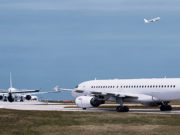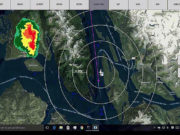Greater cooperation among European aviation stakeholders is required to help the industry cope with increasing air traffic, diminishing resources and new technologies, the European Aviation Safety Agency (EASA) says.
In its European Plan for Aviation Safety (EPAS), 2018–2022, made public on Friday, EASA said it aimed to provide a “coherent and transparent framework for safety work at [the] regional level, helping the identification of major safety risks and actions to take, supporting member states to implement their state safety programmes (SSP) and the global Aviation Safety Plan (GASP), and aiding the sharing of best practice and knowledge.”
Among the strategies endorsed by the report are improving safety by improving safety management and using a data collection and analysis program known as Data4Safety, designed to collect all data that may support continent-wide management of safety risks, including flight data, accident and incident reports and weather data.
As the aviation system increases in complexity, with the introduction of various types of new technologies, the correct training methods must be adopted, the report said, adding that requirements should include competency-based training for all licenses and ratings, updated fatigue-mitigation requirements and “facilitating the availability of adequate personnel in competent authorities.
“These actions will contribute to mitigating related safety issues, which play a role in improving safety across all aviation domains. Training and education are considered key enablers.”
The report noted that most EASA safety activities are focused on commercial air transport airplanes, a group that experienced one fatal accident in 2016 and 16 non non-fatal accidents — both below the 10-year average.



Commentary, News
Q&A with IATA SVP Safety and Flight Operations Gilberto López Meyer
Gilberto López Meyer joined the International Air Transport Association (IATA) as senior vice president of…
by FSF Editorial Staff